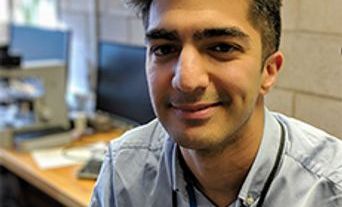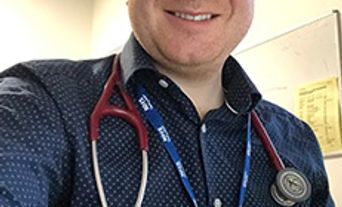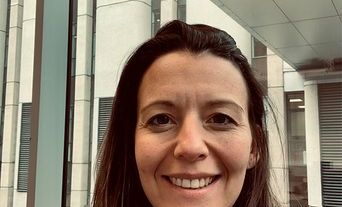Education, specialty and career pathway
I graduated in 2008 from a medical school back home – Ain Shams University in Egypt. I knew in my heart that a career learning about and treating infection was my path in life. However, it was unclear to me where to start. After careful consideration, I decided with the help of my wife and family to enhance my knowledge by self-funding an MSc course in medical and molecular microbiology at the University of Manchester, which I passed with merit in 2011. This course was an eye-opener as to how well developed the infection specialty is in the UK.
I therefore came to the decision to stay and pursue postgraduate training over here. I attempted the Professional and Linguistic Assessments Board examination and managed to gain GMC registration in 2013 following my successful application. Soon after, I started my medical career in the UK with a few non-training jobs as I aimed to build up a portfolio of work experience. In response to changes in the training programme, I had to pass yet another exam to qualify for my dream career. I successfully completed the MRCP exams in 2016 before starting training in my specialty in 2017. At the time of writing this, I am in my last few weeks of training as an ST7 in medical microbiology and infectious diseases.
Key achievements
Personally, one of my most important achievements is my family. I have a lovely wife, May, and a bright 6-year-old daughter, Lilas, who I am very proud of. I am blessed to be with them.
One of the highlights of my professional career has been working through a pandemic.
Having been a frontline infectious diseases trainee at the time, I was among the frontline healthcare staff assessing and treating patients with COVID. I have seen losses and wins, which I am sure have shaped the person I am now. Saying that, despite these years being a challenge in my career I have managed to complete my training and have become a Fellow of the Royal College of Pathologists in medical microbiology. I was the College’s trainee representative for my specialty on the Medical Microbiology and Virology Specialty Advisory Committee and the Trainees’ Advisory Committee.
Overall, I have met many wonderful individuals throughout my life. From my parents, my wife, my siblings, my daughter, to my teachers, tutors, junior and senior colleagues, nurses, and support workers: you are all my true achievement. You have all impacted and shaped the person I am today, and have helped lead me to where I am. This, if anything, would be my greatest lifelong achievement.

Key challenges
Consolidation and centralisation of services
There are several well-recognised challenges that pathology faces. Consolidation of laboratories is the most obvious in my opinion. As pathologists, we are attached to laboratories but many hospitals do not have their own laboratories on-site. They therefore have to outsource their work to other trusts with mega-laboratories that are able to cope with heavy workloads. In principle, there are advantages to that arrangement from a cost point of view as well as being able to provide more complex tests. But, on the other hand, the logistics of transporting specimens within turnaround times are a hindrance – not to mention the IT issues around it. The impact on training and trainees is also major, which, combined with centralisation of services and specialties, decreases the exposure of trainees to certain specialties during their training. It is a hurdle that we, unfortunately, will have to learn to deal with and overcome.
Pay equality
Another challenge is the inequality of pay among trainees of different pathology subspecialties, and even within the same subspecialty on some occasions. The Trainees’ Advisory Committee has been actively involved in raising this as a major concern at a national level and will continue to do so until it is addressed.

NHS during the first wave of the pandemic.
Inspiring trainees
I tend to share what I enjoy about my work. For instance, as I work on the wards, I see patients face to face, give advice over the phone and help to manage the microbiology laboratory. It is this mixture that not many specialties can offer. The blend of tasks between clinical and laboratory work makes my specialty very interesting. I also tend to see myself and my colleagues forming links between doctors from other specialties and the laboratory. We help them understand and interpret test results, which is of crucial importance to patient care. I feel that I have a positive impact directly and indirectly for the benefit of my patients.

Work–life balance
From a wellbeing point of view, we tend to have a much better work–life balance compared with many other specialties, which is also very attractive. In general, my approach to maintaining a healthy balance is to completely forget about work when I am off duty. We care about our patients and our work, as most doctors are perfectionists by nature. But it will come to a point when you will get lost in between both worlds and you will burn out. Therefore, my advice is to look after yourself and your beloved ones, take time out and switch off when you need to – we are human beings in the end.




